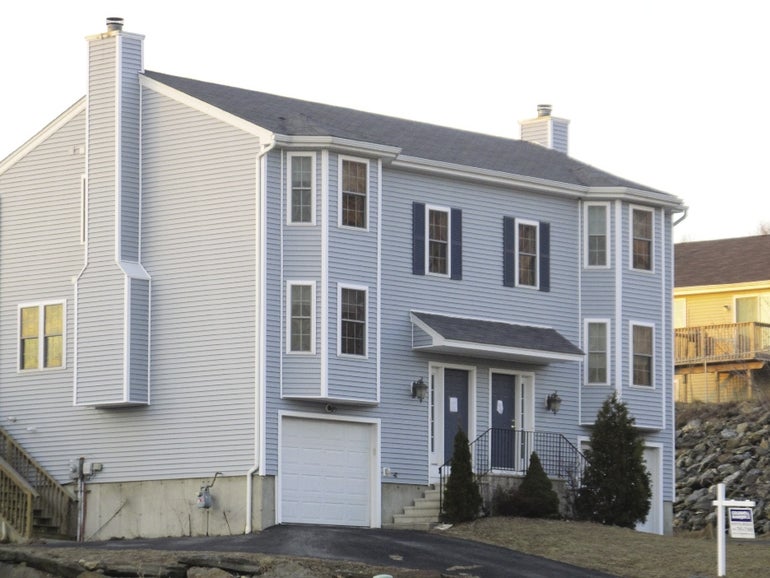Banks clash with homeowner advocates over foreclosure mediation
Defense lawyers and activists welcome a foreclosure-avoidance program as a way to keep Worcester's cash-strapped residents in their homes, while bankers and their trade association see it as an ineffective burden draining them of time and money.
The issue at hand is mandatory mediation, which, in an effort to avoid foreclosure, would require mortgage lenders to negotiate with homeowners through a mediated process. Proponents say the requirement will be effective at reducing the number of vacant properties in the city.
In December, Worcester became just the fourth community in Massachusetts to approve mandatory mediation. New City Manager Ed Augustus has convened a working group to examine legal concerns and budgetary impacts associated with implementing the ordinance, city spokeswoman Amanda Riik said.
The ordinance passed 9-1 after 14 months of intensive lobbying by the Worcester Anti-Foreclosure Team, a local grassroots group. Team organizer Jon Marien said the mediation provides homeowners with more recourse since lenders in Massachusetts aren't required to prove their case in court before carrying out a foreclosure.
“When the banks actually have to sit with someone face to face, and (try to) prove that foreclosure is a more viable financial alternative … a lot fewer homes get foreclosed upon,” Marien said.
Under Worcester's program, lenders will need to receive a mediation certificate from a neutral arbitrator before they're allowed to foreclose, Marien said. Such a certificate will be awarded only after the arbitrator determines that the lender has conducted good-faith negotiations with the borrower.
Just 20 percent of Massachusetts residents facing foreclosure have been able to work out alternative plans with their lenders, according to Grace Ross, coordinator of the Massachusetts Alliance Against Predatory Lending.
But in Connecticut — one of 11 states where all homeowners are entitled to supervised mediation — nearly half of homeowners completing mediation between July 2008 and October 2010 received permanent loan modifications, while nearly two-thirds reached settlements that allowed them to remain in their homes, the National Consumer Law Center found.
“For the folks who participate, the results are fabulous,” Ross said.
Mediation also offers residents a chance to stay in their homes while avoiding bankruptcy, which will hurt a person's credit rating for at least seven years, said Richard Ravosa, an attorney at the Worcester Law Center. Some clients of the law center have opted to wait for implementation of the mediation program rather than declare bankruptcy, Ravosa said.
Forty-nine financial institutions have active foreclosure petitions against 716 Worcester properties, according to the city treasurer's office. More than two-thirds of those petitions come from just five companies, with Bank of America alone accounting for more than one-third of all petitions.
But community banks could also get caught in the crosshairs of new legislation.
Bank CEO cites added legal fees
Peter Alden, president and CEO of Bay State Savings Bank in Worcester, expects each mediation session would force his bank to spend roughly $1,000 on additional legal counsel while adding at least 45 days to the foreclosure process.
“In a challenging economy, we're trying to stay profitable,” Alden said.
Bay State doesn't have any active foreclosure petitions, according to the city.
Mediation sessions would take place during the commonwealth's “right to cure” period, up to 150 days intended for loan modification negotiations between the homeowner and the lender.
But by that time, residents will likely be six to eight months behind on mortgage payments, said Jon Skarin, senior vice president at the Massachusetts Bankers Association. “It's nearly impossible to do any modification that will keep them in the home,” he said.
Moreover, Skarin said residents often begin falling behind on home payments due to the loss of a job or a cutback in work hours. With little or no income for the foreseeable future, it becomes very difficult to formulate a feasible modification that's satisfactory to the lender.
A wellspring of local foreclosure ordinances would also cause harm and add confusion for banks that do business in many municipalities, said Brian Thompson, president and CEO of Commerce Bank in Worcester, which has two active foreclosure petitions in Worcester. Thompson would prefer to see a consistent statewide process for foreclosure redress.
No mandatory mediation ordinances are imminent in other Central Massachusetts towns, Marien said, though such a program is being considered in Northborough, according to the Worcester Anti-Foreclosure Team's Facebook page. Northborough officials didn't respond to a request for comment.
Lenders will also think twice about doing extensive business in communities with more restrictive foreclosure ordinances, Skarin said.
“Anything that lengthens the foreclosure process is going to cost the banks money,” he added.
Local foreclosure rules are shrouded in legal scrutiny, thanks to a suit filed by six Western Massachusetts banks against Springfield over a set of ordinances passed there in 2011. The banks have argued that a regulation requiring banks to post a bond on properties under foreclosure is like a tax (Worcester passed such a regulation several years ago.) and that violates laws that say all new taxes must be approved by the state Legislature.
The case is in front of the Supreme Judicial Court (SJC), and implementation of the ordinances has been stayed.
Meanwhile, mediation ordinances passed in Lynn and Lawrence have yet to be implemented, Skarin said.
Two of the banks suing Springfield — United Bank and Country Bank for Savings — also have a physical presence in or around Worcester. Neither returned calls for comment on this article.
Commerce is not considering a lawsuit against Worcester at this time. Alden said Bay State has considered a legal remedy but is waiting to see how disruptive mediation actually turns out to be.
If the SJC overturns a U.S. District Court ruling and vacates the Springfield ordinances, it would jeopardize Worcester's mediation law, Skarin said. Banks across Central Massachusetts are hoping to see that happen.
“At some point” Thompson said, “there isn't any other option but foreclosure.”















0 Comments